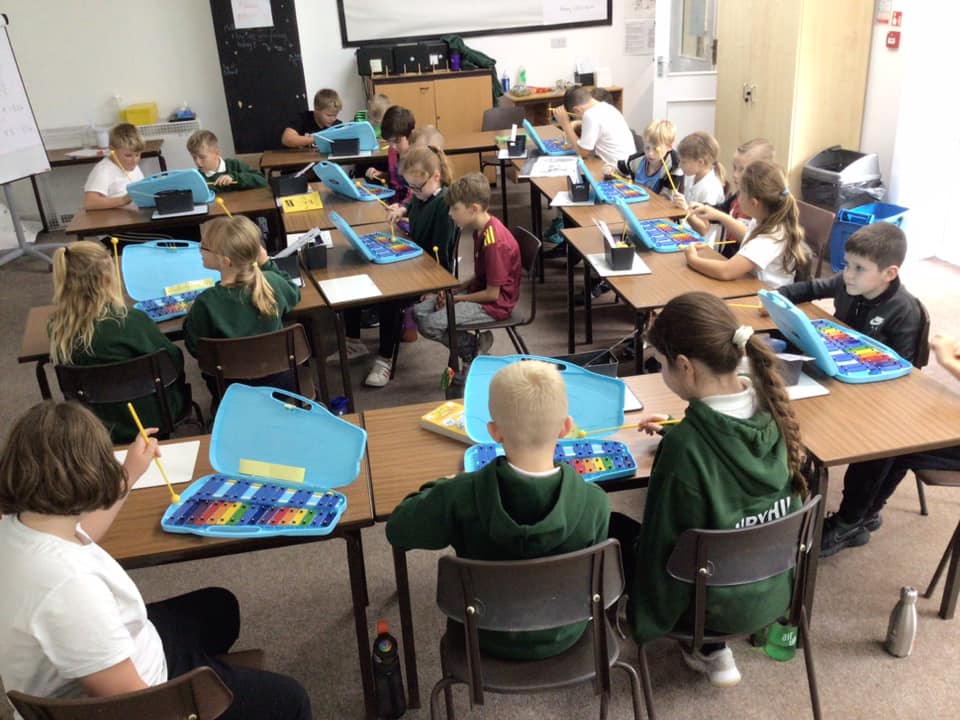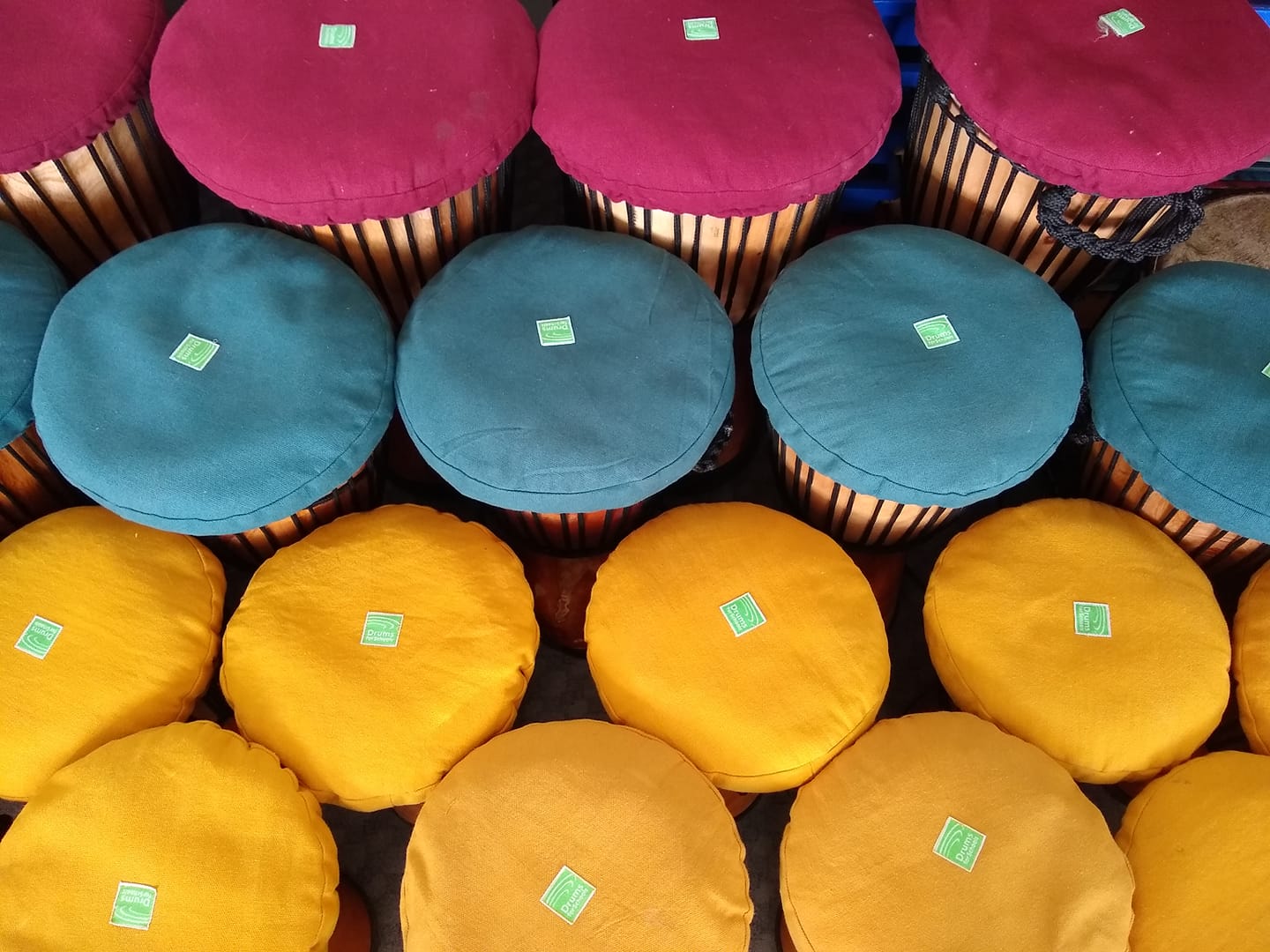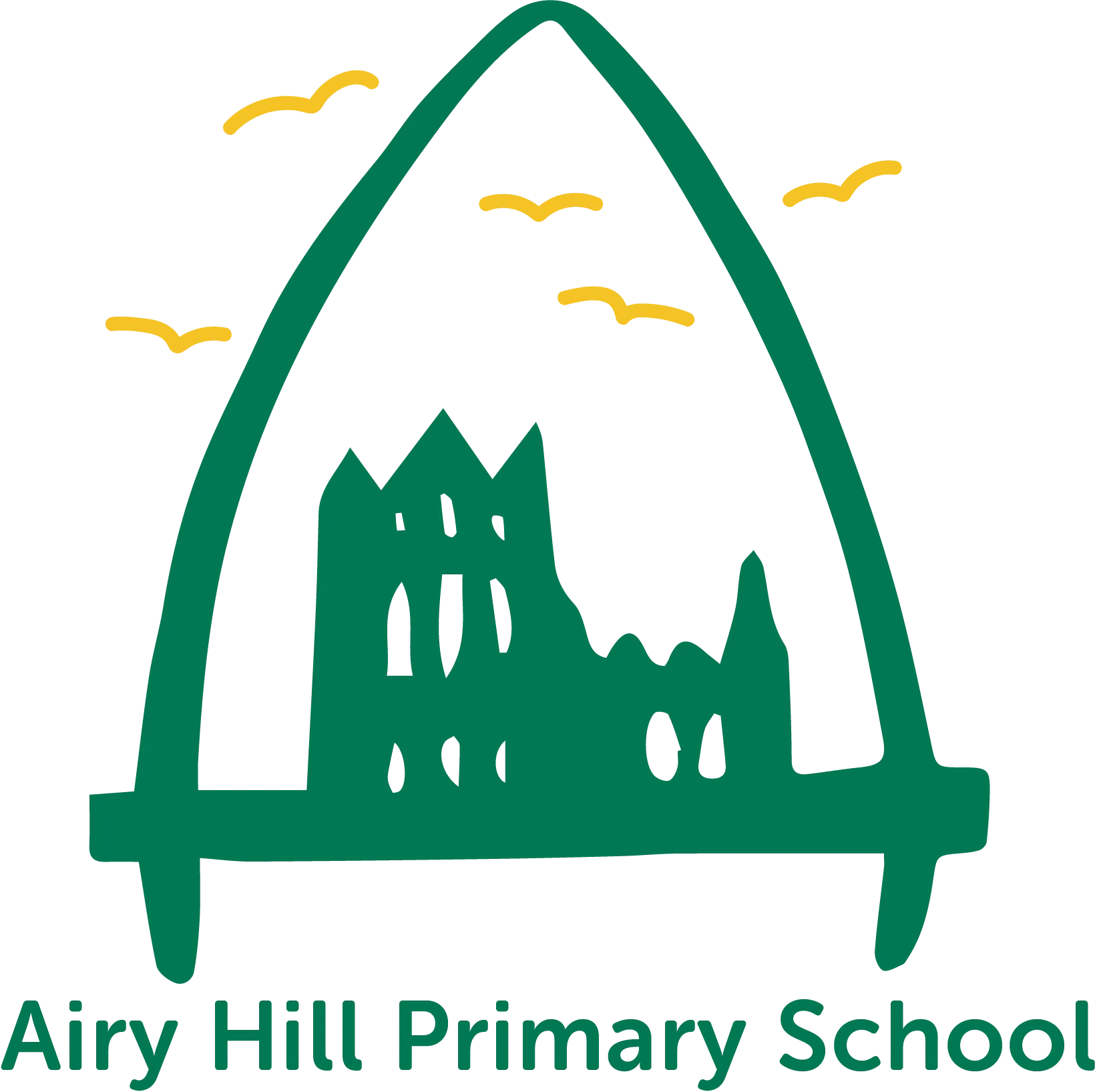Rationale
At Airy Hill we have a clear understanding of the importance of being able to appreciate, respond to, perform and compose music as essential life skills. We strive towards children having a rich appreciation of a wide of musical genres and instruments (including voice), as listeners, composers and performers. This enables them to develop a broad understanding of music as a driver for cultural expression, creativity and community, as well as experience the positivity it can bring to themselves and others.
Aims
Pupils in all years will follow the Kapow primary music curriculum. This provides a structured and progressive scheme of work, which develops children’s skills in singing, playing, listening and composing. Within a topic-based cross-curricular framework, each unit has a specific musical focus. Activities are selected and adapted to match the needs, interests and abilities of all children in the school.
Key Concepts
We focus on the key concepts of: Listening and evaluating, creating sound, notation, improvising and composing and performing-singing and dancing.
Skills Progression
Our curriculum takes children on their journey from EYFS to Year 6. Our Progression of knowledge and skills shows the skills that are taught within each year group and how these skills develop to ensure that attainment targets are securely met by the end of each key stage.
Intent
At Airy Hill it is our intention that first and foremost is to help children to feel that they are musical, and to develop a life-long love of music. We focus on developing the skills, knowledge and understanding that children need in order to become confident performers, composers, and listeners. Our curriculum introduces children to music from all around the world and across generations, teaching children to respect and appreciate the music of all traditions and communities. Children will develop the musical skills of singing, playing tuned and untuned instruments, improvising and composing music, and listening and responding to music. They will develop an understanding of the history and cultural context of the music that they listen to and learn how music can be written down. Through music, our curriculum helps children develop transferable skills such as team-working, leadership, creative thinking, problem-solving, decision-making, and presentation and performance skills. These skills are vital to children’s development as learners and have a wider application in their general lives outside and beyond school. Our curriculum enables pupils to meet the end of key stage attainment targets outlined in the National curriculum and the aims of the scheme align with those in the National curriculum.
Implementation
At Airy Hill we take a holistic approach to music, in which the individual strands below are woven together to create engaging and enriching learning experiences:
- Listening and evaluating
- Creating sound
- Notation
- Improvising and composing
- Performing
Each five-lesson unit combines these strands within a cross-curricular topic designed to capture pupils’ imagination and encourage them to explore music enthusiastically. Within our school children will be taught how to sing fluently and expressively, and play tuned and untuned instruments accurately and with control. They will learn to recognise, demonstrate and name the interrelated dimensions of music - pitch, duration, tempo, timbre, structure, texture and dynamics - and use these expressively in their own improvisations and compositions. Our National curriculum coverage shows which of our units cover each of the National curriculum attainment targets as well as each of the strands. Children progress in terms of tackling more complex tasks and doing more simple tasks better, as well as developing understanding and knowledge of the history of music, staff, and other musical notations, the interrelated dimensions of music and more.
Impact
In each lesson, pupils will actively participate in musical activities drawn from a range of styles and traditions, developing their musical skills and their understanding of how music works. Lessons incorporate a range of teaching strategies from independent tasks, paired and group work as well as improvisation and teacher-led performances. Lessons are ‘hands-on’ and incorporate movement and dance elements, as well as making cross curricular links with other areas of learning. Differentiated guidance is available for every lesson to ensure that lessons can be accessed by all pupils and opportunities to stretch pupils’ learning are available when required.


We have chosen to use the KAPOW curriculum for music as KAPOW has been designed by music and primary trained experts. KAPOW meets all the requirements of the national curriculum. KAPOW is sequenced in a logical and spiral curriculum way so knowledge is retained helping pupils to learn and remember more.
